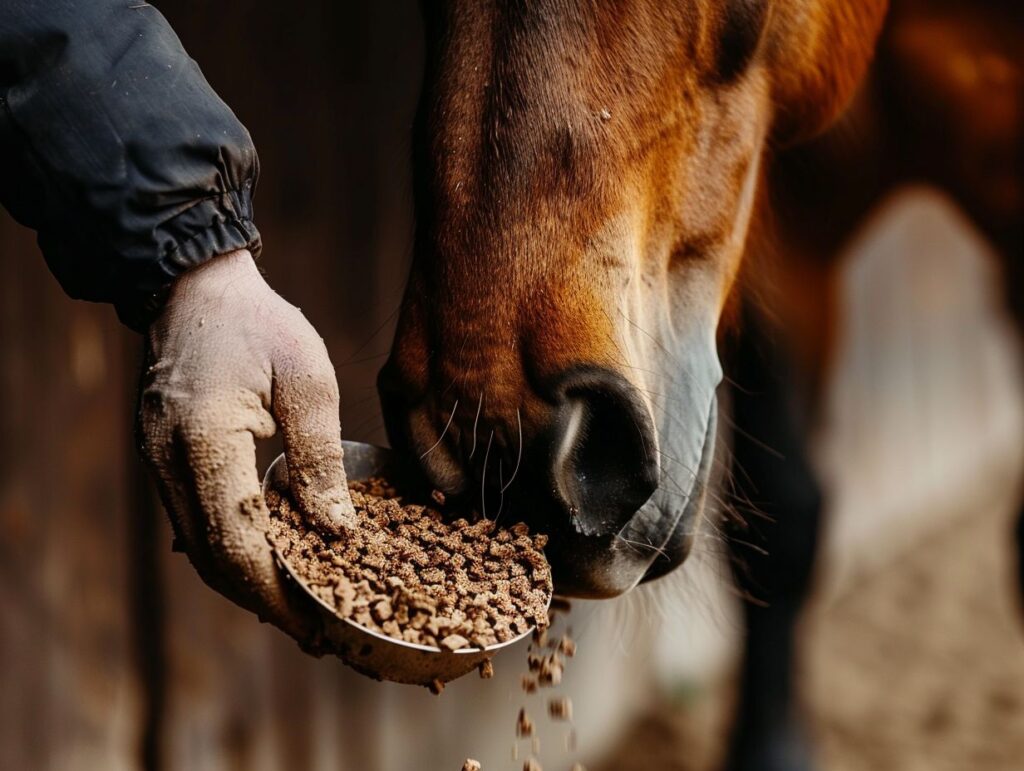If you are a horse owner or enthusiast, you have likely encountered the term “ration balancers.” However, it is essential to grasp their significance for the health and well-being of your equine companion.
This article will delve into the realm of ration balancers, examining their importance for horses, key considerations when selecting one, the various types on the market, and methods for identifying the most suitable option for your horse.
Let us embark on the path towards achieving optimal equine nutrition.
Understanding Ration Balancers
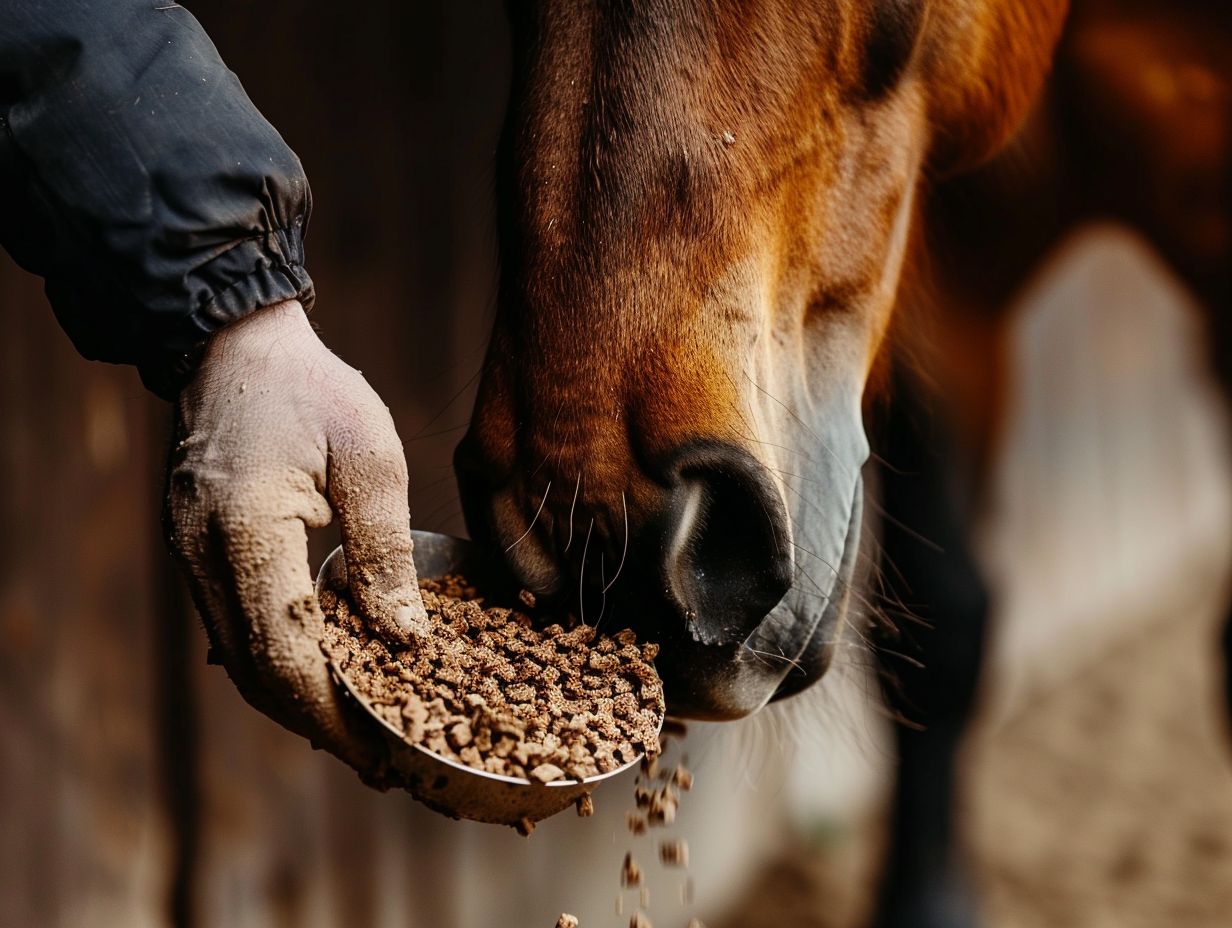
Understanding ration balancers is essential for optimizing the nutritional intake of horses. These specialized supplements are formulated to provide crucial nutrients like protein, vitamins, minerals, and amino acids that may be deficient in a horse’s diet.
When you integrate ration balancers into your horse’s nutrition plan, you can guarantee that your equine companion receives a comprehensive nutritional profile tailored to their specific requirements. The protein content in these supplements supports muscle development and maintenance, contributing to the overall strength and performance of the horse. The precise combination of vitamins and minerals enhances hoof health, promotes a glossy coat, and boosts energy levels. Ration balancers are also crucial for managing weight and supporting digestive health, making them a vital aspect of a holistic equine nutrition strategy.
Seeking guidance from equine specialists can assist in developing a personalized feeding regimen that addresses the individual needs of each horse.
What are Ration Balancers?
When considering ration balancers for your horses, remember that they are concentrated feed supplements designed to deliver essential nutrients in a highly digestible form. Typically, these supplements are meticulously formulated to provide a precise balance of protein, vitamins, minerals, and amino acids to complement your horse’s regular diet.
These vital nutrients are fundamental in maintaining the overall health and performance of your horses. Protein is crucial for muscle development and repair, while vitamins like A, D, and E are essential for immune function and bone health. Minerals such as calcium, phosphorus, and magnesium are critical for strong bones and teeth. Amino acids, serving as the building blocks of protein, support tissue repair and growth.
It is crucial to adhere closely to recommended dosages and feeding instructions to ensure your horse receives the necessary nutrients without overwhelming its system. When choosing a ration balancer, consider factors like nutritional analysis, the reputation of the manufacturer, and the quality of ingredients to make the optimal decision for your horse’s well-being.
Why are They Important for Horses?
Ration balancers play a crucial role in supporting your horse’s overall health and well-being by addressing specific nutritional needs that may be lacking in its regular diet. They are particularly advantageous for promoting weight management, muscle development, hoof health, coat condition, energy levels, and digestive health.
By providing precise amounts of essential vitamins, minerals, and amino acids, ration balancers ensure that your horse receives a complete and balanced diet essential for optimal performance and longevity. Consistent use of ration balancers can result in enhanced immune function, improved stress management, and quicker recovery after strenuous exercise.
The proper nutrient balance in ration balancers can help prevent deficiencies that might lead to health problems like poor coat quality, weak hooves, or decreased muscle tone. By incorporating ration balancers into your horse’s feeding routine, you can achieve long-term benefits, ensuring that your horse thrives and excels in various activities.
Factors to Consider when Choosing a Ration Balancer
When selecting a ration balancer for your horse, you need to consider several factors to ensure it meets your horse’s individual nutritional requirements. These factors include your horse’s age, activity level, existing nutritional needs, and potential deficiencies.
The age of your horse is a critical factor in determining the appropriate type of ration balancer, as nutritional requirements vary for young growing horses, adult maintenance horses, and senior horses. The level of physical activity your horse participates in will determine the necessary energy and specific nutrients in the balancer. It is important to take into account any existing nutritional needs or deficiencies your horse may have, such as vitamin or mineral imbalances, and choose a balancer that addresses these specific requirements to promote optimal health and performance.
Age and Activity Level of Horse
When determining the most suitable ration balancer for a horse, factors such as age and activity level play a crucial role. Different nutritional requirements are necessary for young horses in growth stages compared to senior horses or performance horses.
For young, growing horses, it is essential to meet their nutritional needs to support the development of strong bones and muscles. Their diets should include higher levels of protein, vitamins, and minerals to facilitate proper growth and overall health.
Conversely, senior horses may benefit from specialized balancers that include joint support and digestive aids to address age-related concerns. Performance horses, due to their demanding exercise regimens, may require supplements that promote muscle recovery and enhance stamina.
By tailoring ration balancers to meet these specific requirements effectively, each horse can receive the essential nutrients suitable for their age and level of activity.
Nutritional Needs and Deficiencies
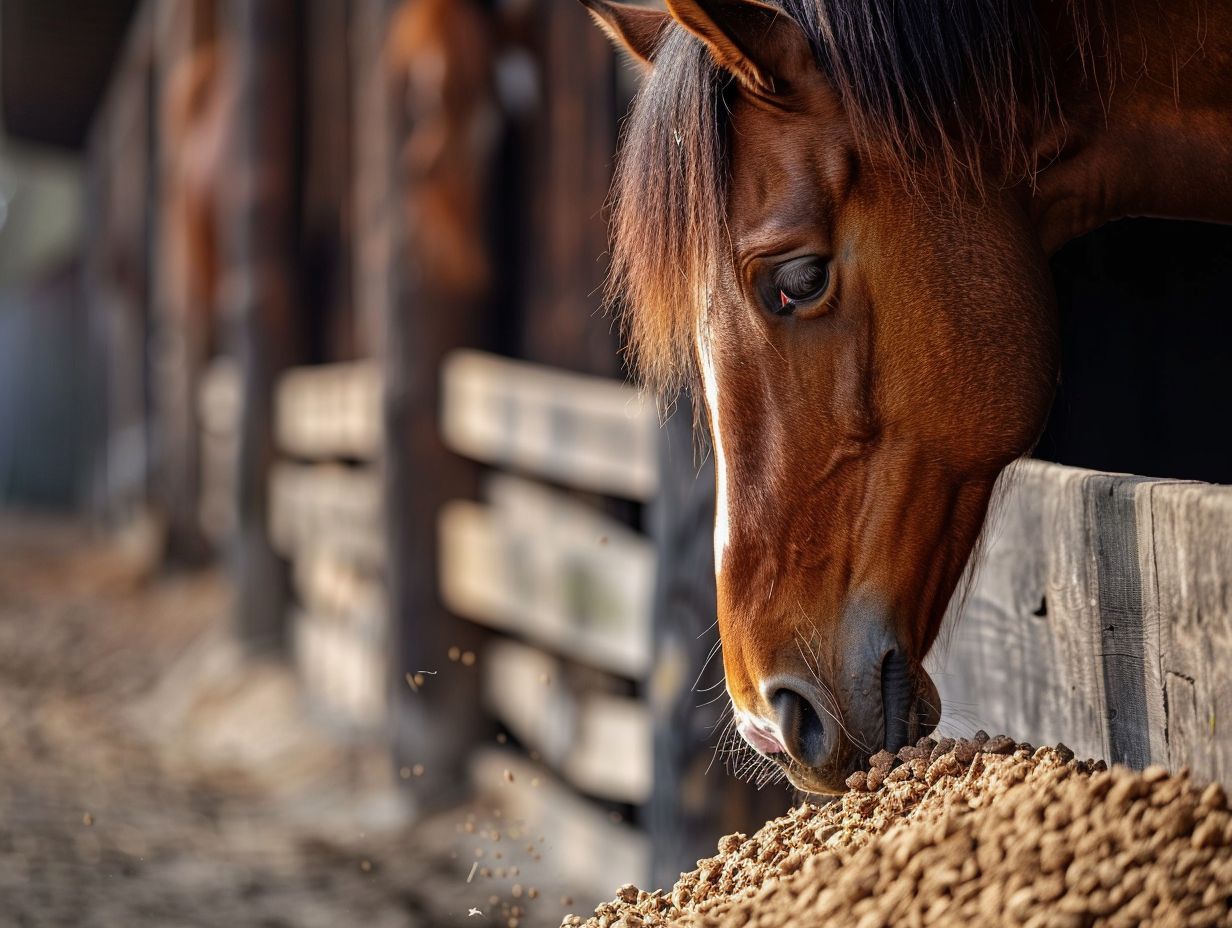
When selecting a ration balancer for your horse, it is essential to have a thorough understanding of their nutritional requirements and potential deficiencies. Start by evaluating your horse’s current diet to identify any gaps in crucial nutrients, which will help you determine the most appropriate supplementation.
This evaluation process ensures that your horse is receiving the specific nutrients necessary for optimal health and performance. By carefully analyzing the existing dietary intake, you, as a horse owner or caretaker, can address any deficiencies through targeted supplementation, ensuring the provision of essential protein, vitamins, minerals, and amino acids.
Maintaining a balanced diet is critical for your horse’s overall well-being and longevity as it supports growth, muscle development, immune function, and the health of organs and tissues. Supplementing as required can help prevent health issues and improve your horse’s overall quality of life.
Types of Ration Balancers
Ration balancers are available in various forms, including pelleted and powdered options, as well as grain-based or grain-free formulations. Each type offers distinct advantages based on horses’ specific dietary needs and feeding preferences.
Pelleted ration balancers are popular for their convenience and ease of feeding, especially for horses that consume their meals quickly. The uniformity of pelleted formulas ensures that each bite contains a consistent blend of essential nutrients. On the other hand, powdered ration balancers can be beneficial for picky eaters or horses with dental issues, as they can be easily mixed into the feed.
When choosing between grain-based and grain-free options, it’s important to consider the horse’s digestive sensitivities and overall diet. Grain-free ration balancers may be more suitable for horses prone to metabolic issues or insulin resistance, while grain-based options can provide additional energy for working horses or those with higher caloric needs.
Pelleted vs. Powdered
When deciding between pelleted and powdered ration balancers, the choice often hinges on the horse’s feeding regimen and the ease of administration. Pelleted options are typically preferred for their simplicity in measuring and consistent feeding, whereas powdered forms offer flexibility in mixing with feeds or supplements.
Many horse owners opt for pelleted ration balancers due to their convenience. These can be easily measured and added to the horse’s daily feed, allowing for accurate dosing and ensuring the horse receives the necessary nutrients. Conversely, powdered ration balancers are adaptable and can blend seamlessly with other feeds or supplements, providing customization tailored to the horse’s specific requirements.
It is essential to adhere closely to the feeding guidelines provided by the manufacturer to maintain proper balance and integration into the horse’s diet, maximizing the benefits of the ration balancer.
Grain vs. Grain-Free
When deciding between grain and grain-free ration balancers, you must consider your horse’s sensitivities, dietary restrictions, and your preference for natural or GMO-free ingredients. The choice between grain and grain-free options often depends on your horse’s specific dietary intolerances or sensitivities.
These factors are critical since horses, much like humans, have unique digestive health needs. For horses with sensitivities or those in need of specialized dietary management, grain-free ration balancers can be an effective solution. By selecting grain-free formulations, horse owners can offer their equine companions a diet devoid of common grain allergens and potential irritants, which can enhance digestion and overall well-being.
The increasing popularity of natural and GMO-free feed options has prompted many to explore grain-free alternatives that align with their preference for cleaner, more transparent ingredients.
How to Determine the Best Ration Balancer for Your Horse
When selecting the optimal ration balancer for your horse, you should consult with equine professionals, such as veterinarians or equine nutritionists, to assess your horse’s specific dietary needs and create a customized feeding plan tailored to its individual requirements.
Seeking guidance from experts in equine nutrition will help you decipher the intricate balance of nutrients necessary to support your horse’s overall well-being. These specialists can evaluate factors such as your horse’s age, breed, activity level, and any existing health conditions to craft a personalized nutrition regimen.
It is important to remember that a tailored nutrition plan is crucial to ensuring your horse receives the precise combination of vitamins, minerals, proteins, and fats essential for optimal performance and health. Striving for an individualized approach will maximize your horse’s potential and long-term vitality.
Consulting with a Veterinarian or Equine Nutritionist
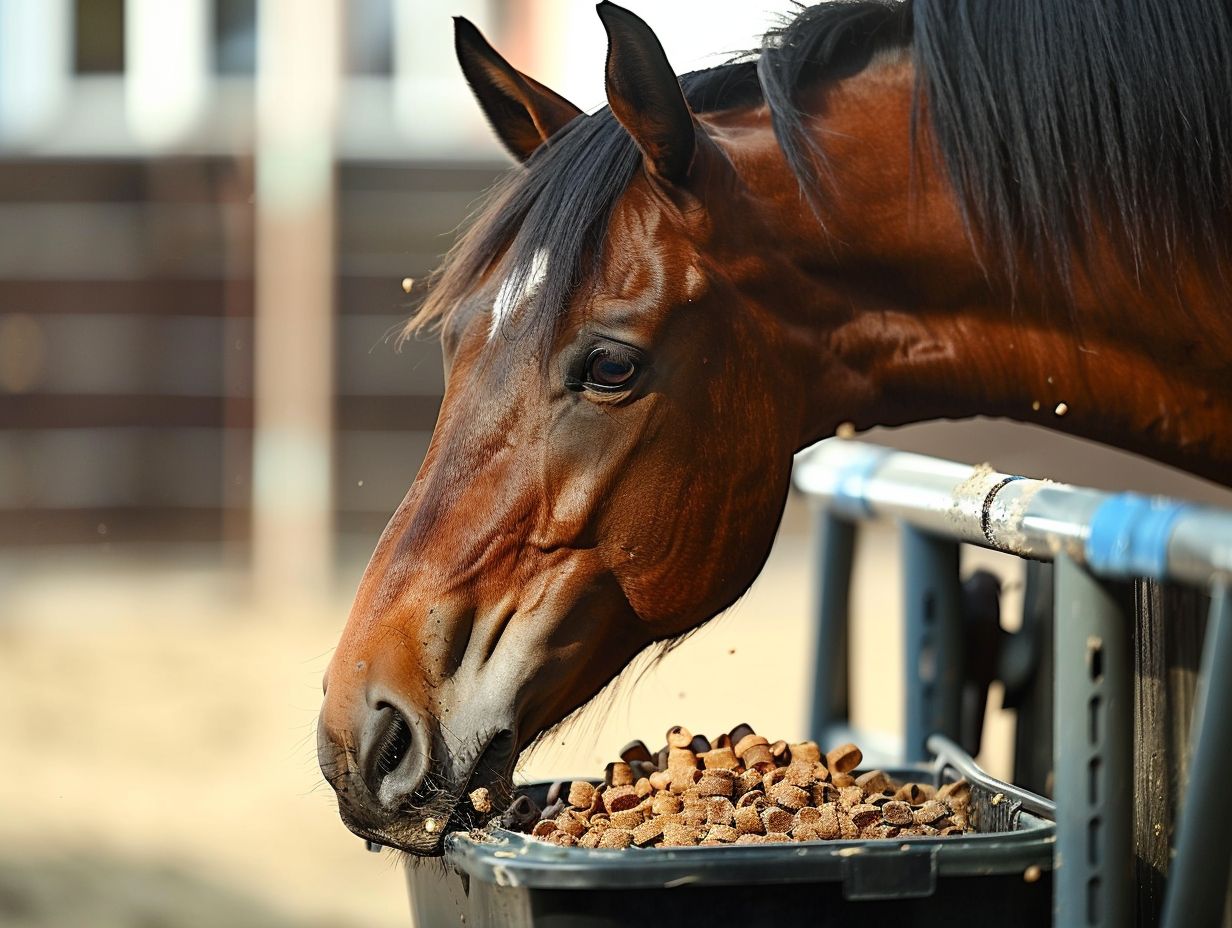
When determining the most suitable ration balancer for your horse, seeking professional advice from a veterinarian or equine nutritionist is essential. These experts can offer valuable insights into your horse’s specific dietary requirements and the health benefits of personalized supplementation.
Their expertise enables a comprehensive assessment of your horse’s individual needs, considering factors such as age, weight, activity level, and any existing health conditions. Working in close collaboration with these professionals, you can guarantee that your horse receives a well-balanced diet that promotes optimal health and performance.
Veterinarians and equine nutritionists can provide guidance on adjusting the ration balancer as necessary, ensuring that your horse’s nutritional requirements are consistently met for long-term well-being.
Reading and Comparing Labels
When evaluating ration balancers, it is crucial for you to read and compare labels to gain an understanding of their ingredients, nutritional content, and adherence to equine industry standards. Make sure to pay close attention to the manufacturer’s reputation and the quality of ingredients utilized in the formulation.
Delving deeper into the nutritional analysis provided on the labels is important for you. Look for crucial information such as protein content, amino acid profiles, and mineral levels. This comprehensive breakdown can provide valuable insights into how well the ration balancer meets the specific dietary requirements of your horse.
Another vital aspect to consider is evaluating the sources of ingredients. Take into account where the components are obtained from, ensuring they are natural, high-quality sources that deliver the necessary nutrients for your horse. Additionally, verifying that the manufacturer complies with regulatory guidelines for equine nutrition products can offer you added assurance and peace of mind.
Implementing and Monitoring Ration Balancers
Effectively implementing and monitoring ration balancers in your horse’s feeding program is essential for tracking progress, evaluating results, and ensuring enhanced performance and overall customer satisfaction.
By carefully integrating ration balancers into your horse’s diet, you can fine-tune their nutrition requirements and support their overall health. Monitoring their response to the supplementation allows you to make necessary adjustments promptly, ensuring that the feeding regimen is tailored to their specific needs. Assessing the outcomes of the ration balancers not only optimizes your horse’s performance but also highlights any areas that may require further attention or modification. This proactive approach fosters a balanced feeding program that promotes your horse’s well-being and long-term success.
Proper Feeding and Adjustments
Establishing a proper feeding schedule and making necessary adjustments based on your horse’s response to the ration balancer is essential for achieving optimal results. Tailored solutions and personalized support can help address individual dietary requirements effectively.
By customizing your horse’s feeding program, you can ensure that they receive the specific nutrients needed to support their well-being. This personalized approach allows for a more targeted supplementation strategy, catering to your horse’s unique needs.
Regular monitoring and adjusting the ration balancer as necessary play a crucial role in maintaining your horse’s health and performance. Equine nutrition experts can provide valuable insights and guidance, helping you make informed decisions that benefit your horse’s overall diet and supplementation plan.
Investing time and effort in creating a structured feeding program tailored to your horse can lead to long-term health and performance benefits.
Tracking and Evaluating Results
Consistent tracking and evaluation of your horse’s response to the ration balancer can provide you with valuable insights into its performance, health, and well-being. This data allows for informed decisions to be made, leading to a competitive edge and long-term positive results.
By maintaining detailed records and closely monitoring how your horse reacts to the ration balancer, you can spot patterns and trends that may impact its overall performance and health. Leveraging tracking and evaluation tools not only helps in identifying key indicators but also give the power tos you to make adjustments for optimal results. Utilizing these tools equips you with the necessary information to enhance your horse’s nutrition and well-being for sustained success in various equestrian activities.
Frequently Asked Questions
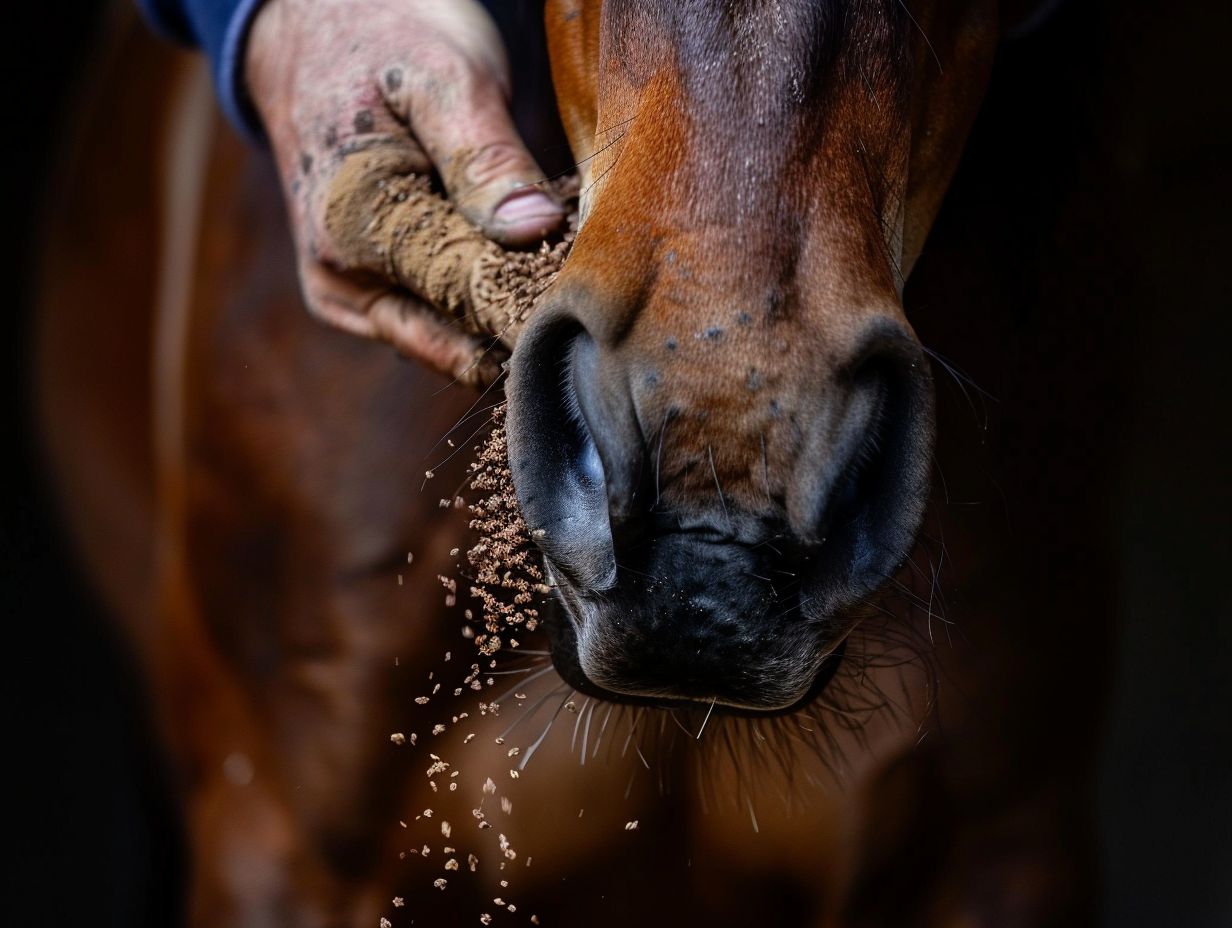
What is the best ration balancer for Horses?
The best ration balancer for horses is one that meets their specific nutritional needs based on their age, breed, and activity level. It should also be formulated to support their overall health and well-being.
What is a ration balancer for Horses?
A ration balancer is a concentrated supplement that provides essential vitamins, minerals, and amino acids to balance out a horse’s diet. It is used to enhance the nutrient content of a horse’s forage and other feeds.
How do I choose the right ration balancer for my Horse?
The best way to choose the right ration balancer for your horse is to consult with a veterinarian or equine nutritionist. They can assess your horse’s individual needs and recommend a ration balancer that will meet their dietary requirements.
What are important ingredients to look for in a ration balancer for Horses?
Some important ingredients to look for in a ration balancer for horses include essential amino acids, vitamins, and minerals, such as lysine, methionine, calcium, and phosphorus. These nutrients are crucial for maintaining a healthy weight, strong bones, and a shiny coat in horses.
Is a ration balancer necessary for my Horse’s diet?
If your horse is receiving a well-balanced diet with adequate levels of essential nutrients, then a ration balancer may not be necessary. However, if they are not getting all the nutrients they need from their forage and feed, a ration balancer can help fill in the gaps and promote overall health.
Can I feed my Horse too much ration balancer?
Yes, it is possible to overfeed a horse with ration balancer. It is important to follow the recommended feeding guidelines based on your horse’s body weight and activity level. Overfeeding can lead to nutrient imbalances and potentially cause health issues in horses.
